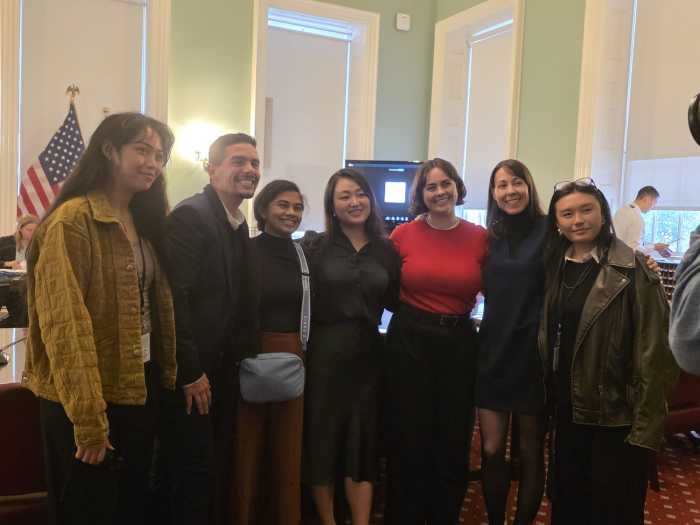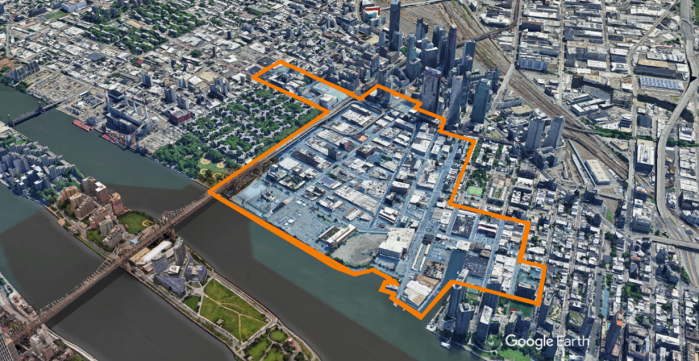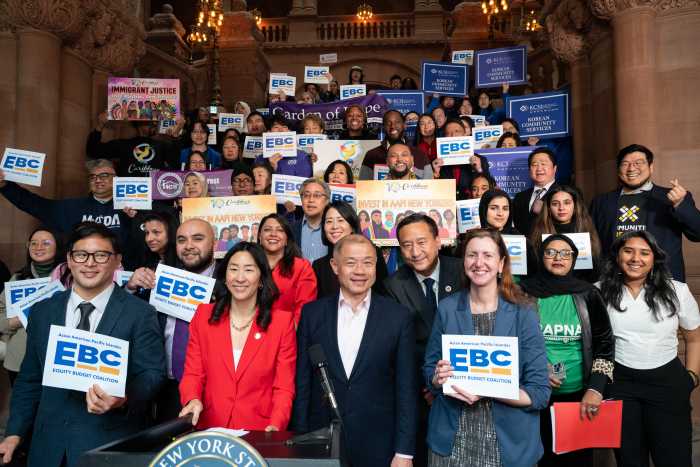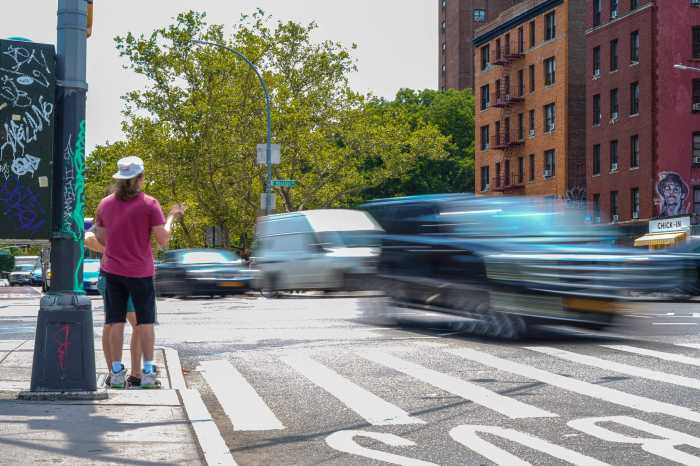The City Council’s Subcommittee on Zoning and Franchises and Committee on Land Use both unanimously voted to approve the OneLIC Neighborhood Plan Wednesday after Council Member Julie Won secured almost $2 billion in commitments from the city during last-minute negotiations.
Won, who represents the district covered by the rezoning, announced on Oct. 29 that she is “proud” to support OneLIC after securing $1.97 billion in investment from the city that would provide 1,300 new school seats, investment in the neighborhood’s sewage and plumbing infrastructure and around 15 acres of open space among several other investments.
Won’s support represents a major victory for the ambitious proposal, which stands as the largest neighborhood-specific rezoning plan in New York City over the past 25 years. Won did not vote in either committee hearing on Wednesday, but her support was critical to the success of the proposal, which goes before the full Council next month.
OneLIC, proposed by the Department of City Planning and the Adams Administration, covers 54 full or partial blocks in Long Island City and would add around 14,700 homes to the neighborhood, 4,300 of which would be affordable.

DCP said the ambitious rezoning aimed to revise outdated zoning regulations to all for mixed-use development, creating 14,4000 new jobs for the neighborhood alongside over 3.5 million square feet of commercial and industrial space.
But Won had consistently voiced her opposition to the plan approved by the City Planning Commission last month, stating at a Council hearing that the CPC’s version of the plan “does not go far enough.” She had also stated that she would vote against the plan unless it included iron-clad commitments to the local community.
Won announced her support of the plan on Wednesday after securing those commitments from the city during last-minute negotiations, describing a $1.97 billion public investment in the area as “historic.”
The OneLIC plan now includes a $206 million investment in Queensbridge Houses to upgrade community facilities, address chronic plumbing issues and bring vacant units back online.
OneLIC also includes plans for a fully-connected waterfront from Queensbridge Park to Gantry Plaza State Park after last-minute negotiations between Won and Con Edison, with the energy firm agreeing to give up a portion of its waterfront property to the project. The New York Power Authority and Silvercup Studios have also donated land to the city to facilitate the development.
The city has also committed to converting city-owned lots underneath the Queensboro Bridge into around 5 acres of parkland that will help restore Queensbridge Baby Park. Won said the conversion of those lots into public parkland, coupled with the connected waterfront, will help remove barriers between the Queensbridge community and the rest of Long Island City.
She heralded the inclusion of 1,300 school seats in the final plan, including plans for an expedited middle school in the rezoning area.
Won said she has also secured an agreement ensuring that all private developments will be mapped under Mandatory Inclusionary Housing’s Option 1 or 3. Option 1 requires that 25% of a development be available at an average of 60% of the Area Median Income (AMI) with at least 10% of units set aside for households earning 40% AMI, while Option 3 mandates that 20% of a development are affordable targeting an average of 40% AMI.
Won described both options as the two most deeply affordable options offered by Mandatory Inclusionary Housing.
OneLIC represents the fifth attempt to rezone the portion of the neighborhood that was once earmarked as a potential site for Amazon’s HQ2. Won touted extensive community engagement as a reason for OneLIC’s success where other efforts had failed.
She pointed to 21 large public events that took place across a two-year period in addition to two surveys, thousands of doors canvassed and thousands of public comments and testimony that helped shape the final OneLIC plan approved on Wednesday.
Won had previously described OneLIC as an opportunity to “right the wrongs” of decades of underinvestment in the community and said the current plan seized that opportunity.

“This is the highest amount of investment of any neighborhood rezoning in the City of New York,” Won said Wednesday afternoon.
She said past efforts to rezone the area “almost felt hopeless” but said she could now breathe a “sigh of relief” after securing a large swathe of commitments to the community.
“Looking at this side of Anable Basin, where currently it’s barren with a lot of empty or underutilized warehouses… to finally know that we’re going to get our parks back and more investments to build out expansions of parks, as well as waterfront connectivity and sewage and plumbing infrastructure, NYCHA investments, schools and so much more,” Won said after Wednesday’s hearing.
She said she will continue to fight for more commitments between now and Nov. 12 when the full Council votes on OneLIC at a stated meeting. She added that the almost $2 billion investment refers solely to city commitments and said she would continue to fight to secure private commitments in the two weeks before the Council votes on the plan as part of the city’s Uniform Land Use Review Procedure (ULURP).
Mayor Eric Adams welcomed the Council vote on Wednesday, stating that OneLIC would set the stage for a more “vibrant” Long Island City that welcomes people from all walks of life.
“It will help build a future where New Yorkers can live, work, and raise their families — all in the same neighborhood. But this plan is about more than just homes and jobs; it’ll bolster Long Island City’s infrastructure and improve everyday life for residents, workers, students, and visitors,” Adams said in a statement.
Community Board 2 Chair Anatole Ashraf welcomed approval of the plan, stating that the last-minute commitments have highlighted the importance of community-driven planning.
However, Ashraf said CB2 would ensure that the commitments announced Wednesday are delivered and further called for the creation of a Community Oversight Committee to monitor the rezoning’s progress, including representatives from the neighborhood’s arts and culture, housing, small business and environmental stakeholders.
“We’re not letting people off the hook. CB2 is watching to make sure promises translate into progress.” Ashraf said.
“This is a milestone worth celebrating — but also a call to stay engaged. CB2 will continue to push for deeper affordability, safer streets, better transit, resilient infrastructure, small business protections, and lasting support for arts and culture.”


































